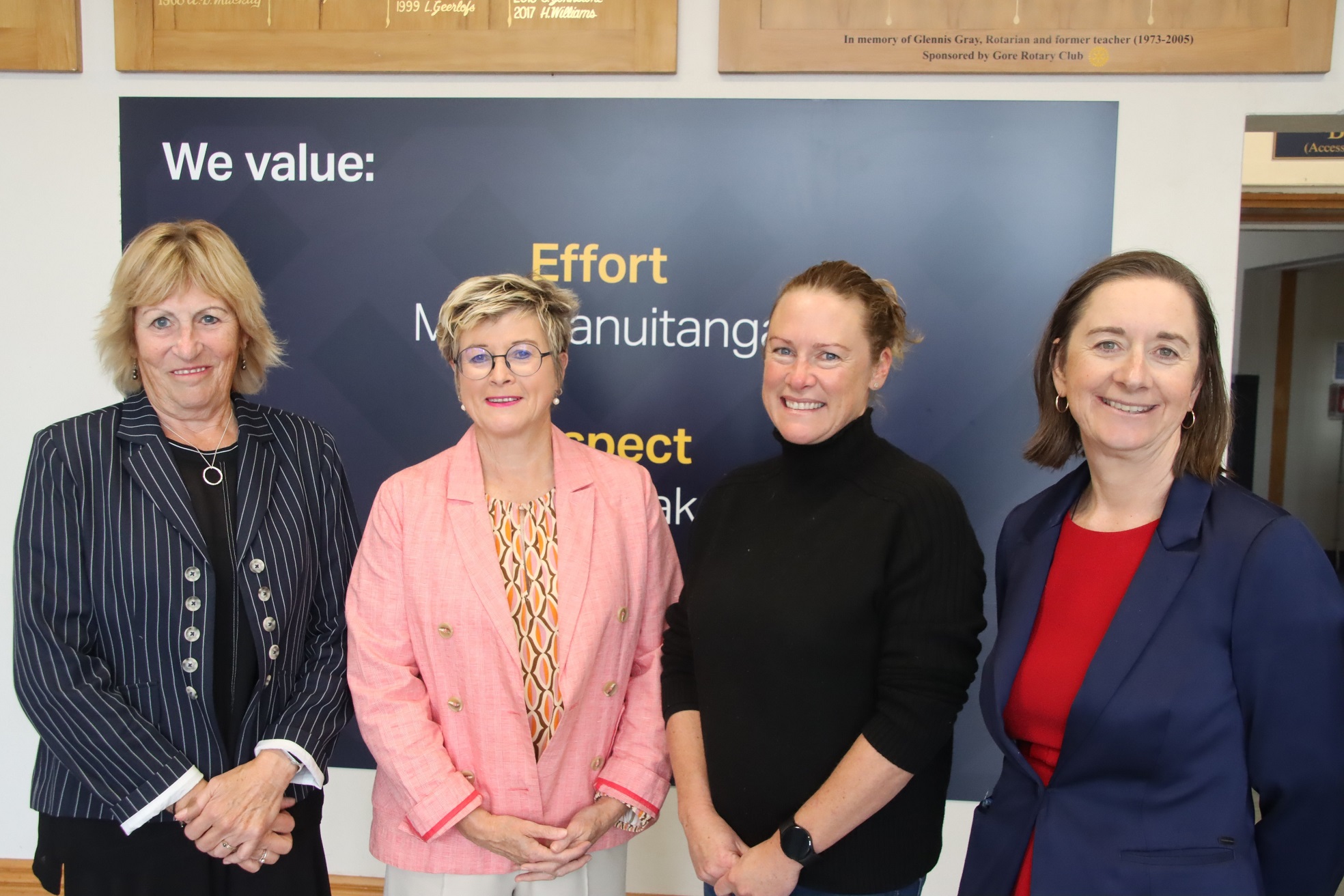
Independent leadership consultant Pauline Harrison of Auckland, had credentials which included a stint as England Netball chief executive.
Consultant Kereyn Smith was the New Zealand Olympic Committee chief executive for 11 years.
The pair also held a seminar for Eastern Southland women business leaders and managers.
Ms Harrison said part of the programme the pair ran was to help leaders become aware of their leadership strengths, and the strengths of others.
"If you’re more aware of people’s strengths then it’s much easier to work together as a team to make decisions, to delegate, to manage projects.
"We create that environment where they can have those conversations."
People were already functioning as leaders and needed to know how to build on their strengths, rather than improving their weaknesses.
"We focus on taking the good up to great."
One of the obstacles to developing a good team dynamic, that she had noticed, was poor listening.
Often people listened while waiting to speak, but listening to understand was a way leaders could learn more about themselves and their team members.
"We have a big focus on the purpose and intent of listening."
The Māruawai board had "done an amazing job of creating this new entity and they’re well down the track in terms of developing good teams", Ms Hamilton said.
Ms Smith said it was timely for the college board of trustees and staff to be thinking about leadership.
"It’s particularly important at this moment for Māruawai, as a new school, to really establish their leadership impact and what they want to do."
Her experience had mostly been in sports governance roles.
Ms Harrison talked about the theory and she provided stories from her experience, Ms Smith said.
While the theory was important, it was the way the theory was put into practice that provided the "magic".
Sometimes people set their sights too low.
"One of the things that we’re trying to do is help people achieve their potential in their leadership.
"Lift their eyes up ... aim high and you’ll lift people with you."
Ms Harrison said the main emphasis of her work was to provide leadership training for women, mainly in sport.
"I run an international programme for women in sport who are aspiring to progress their careers because, as we know, it’s really hard for women in a fairly male-dominated industry. "
She mainly worked with administrators and coaches.
"Generally it’s about confidence for women and understanding their own abilities, and how they can transfer those from the pitch or the playing field to a meeting room or board room."
Often athletes, who were looking for a career in sport after they finished competing, did not realise they had already been demonstrating leadership.
When the women came on the leadership programme, often they would have a "wow" moment when they realised this.
Some of the programmes were for women only.
"It’s easier to create a really safe environment for them to learn and grow."
Often these women were in a male dominated environment where they battled to be heard, Ms Harrison said.
Māruawai College principal Mel Hamilton said the interactive workshops were an opportunity for the school’s leadership teams to gain insights from professionals with a global reputation for excellence in leadership development.
"These sessions helped senior and curriculum leaders gain the skills to guide their teams effectively.
"They focused on recognising and boosting their unique strengths, which inspires collaboration and innovation in our school."
The flow-on effect would help create a positive environment that supported pupil success, Mrs Hamilton said.











